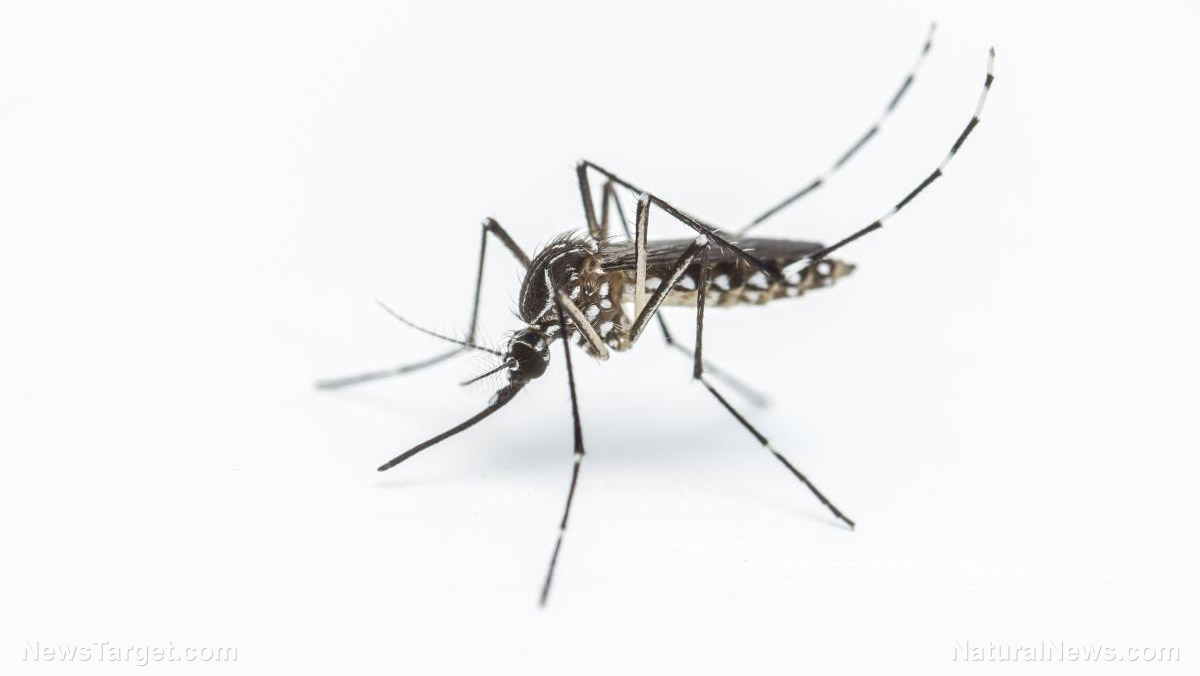Mosquitoes balance taste with risk: Study finds they can remember your smell, and if you tried to swat them
10/27/2018 / By Ralph Flores

There are a few insects, or animals for that matter, that can top our disdain for mosquitoes. They’re pretty much everywhere, and that bite – a reaction in part to their mouthparts impaling you and drinking your blood – is nothing short of annoying to most people. What’s worse: They seem just to fly away right before you swat them, which adds up to the frustration.
Still, keep swatting them, the latest study from researchers at Virginia Tech urge us – they’ll learn to steer clear of us. That learning curve is also what allows mosquitoes to learn the scents of their hosts – an ability they attributed to dopamine. The paper, which was published in the journal Current Biology, showed this effect also applies to adverse events. When the smell is associated with an unpleasant sensation that they have previously felt – like that of an irritated person trying to swat them – it causes them to avoid it in the future.
The researchers demonstrated how dopamine, a chemical which most animals use to process new information, plays a factor in the olfactory learning in mosquitoes. For the study, the team trained female Aedes aegypti mosquitoes in an “aversion training device” – a mechanism designed to stimulate defensive behaviors through shocks and vibrations. Researchers also placed an odorant in the device so that the mosquitoes can pick up the scent during this period. A day after being subjected to aversion training, the mosquitoes were then placed in a Y-maze olfactometer to test their behavior response. The insects were made to fly upwind and choose a path after arriving at a junction – one track contained the odorant used inside the aversion training device, while the other one had a solvent which was used for control. The mosquitoes avoided the odor used in training, which indicated that they have learned the association between the scent and the mechanical shock and flew away from it.
The team also looked at how aversive learning in mosquitoes affects their behavior during feeding. A group of mosquitoes was trained using the aversion training device, then released into an area that contained two artificial feeders with heparinize bovine blood at 37 degrees Celsius; one feeder was scented with octenol, a chemical present in humans that attracts mosquitoes, while the other served as the control. While researchers found that mosquitoes may steer clear from the feeder containing octenol, other factors such as heat or water vapor may cancel out the training.
The tests were also conducted with mosquitoes that did not undergo aversion training, and with those that had their dopamine gene deleted. This bolstered the team’s hypothesis that the chemical is part of the learning process of the insects.
“By understanding how mosquitoes are making decisions on whom to bite, and how learning influences those behaviors, we can better understand the genes and neuronal bases of the behaviors,” Jeffrey Riffell, the lead contact of the study, added. “This could lead to more effective tools for mosquito control.”
Understanding could be an understatement here. Researchers posited that these results of the study would enable future targeted approaches that have the potential to prevent vector-borne diseases such as the Zika fever and yellow fever, which are commonly carried by mosquitoes. (Related: GM mosquitoes increase spread of dengue fever in Brazilian town, causing state of emergency to be renewed.)
“Understanding these mechanisms of mosquito learning and preferences may provide new tools for mosquito control,” explained co-author Clément Vinauger, who is also an assistant professor of biochemistry in the College of Agriculture and Life Sciences at Virginia Tech, in an article that appeared in Newswise. “For example, we could target mosquitoes’ ability to learn and either impair it or exploit it to our advantage.”
So go ahead, and swat those mosquitoes away. While you’re at it, head over to ZikaTruth.com and learn the truth about the debilitating condition.
Sources include:
Tagged Under: aedes aegypti, aversive conditioning, discoveries, disease vector, dopamine, insects, mosquito, mosquitoes, olfactory learning, research, science




















